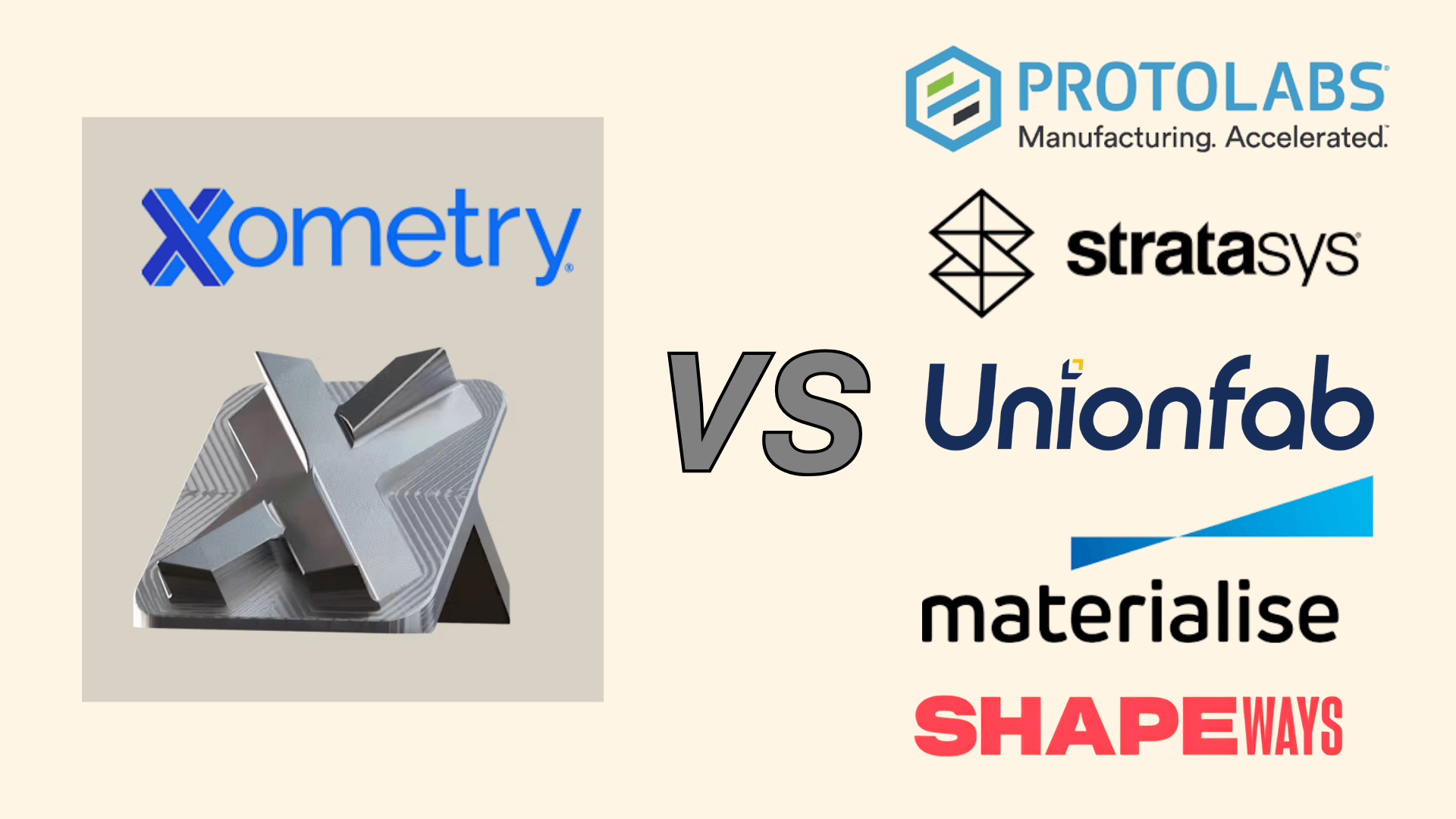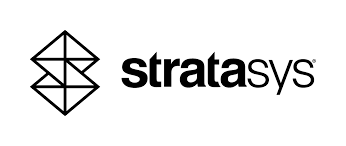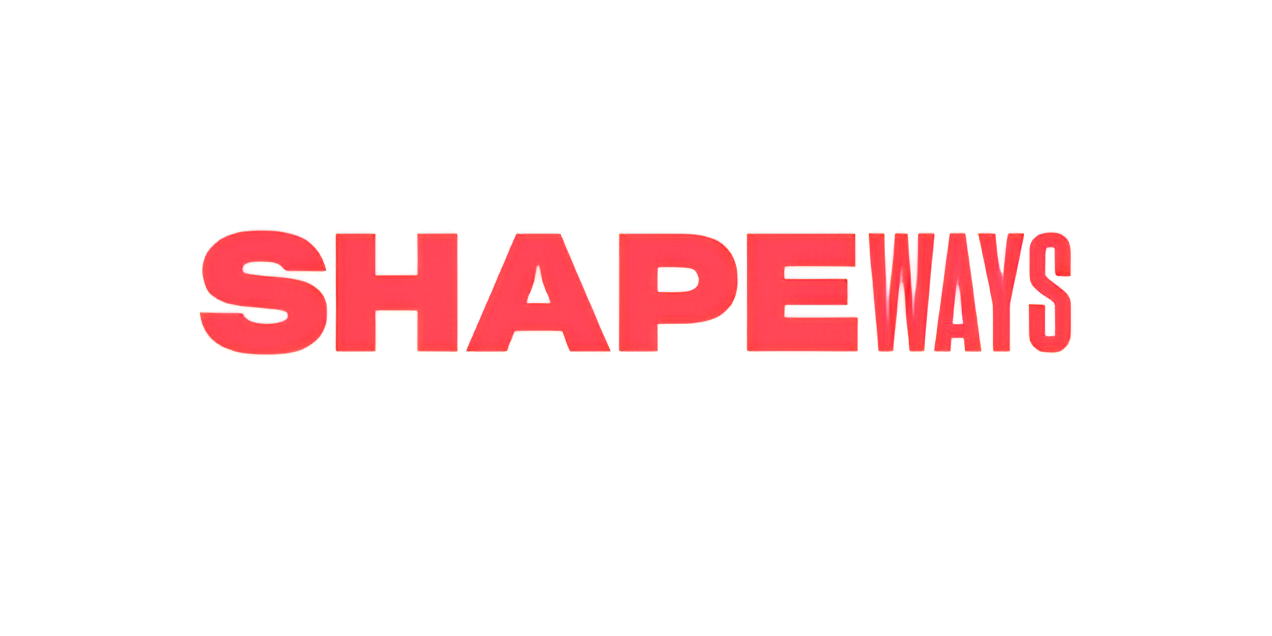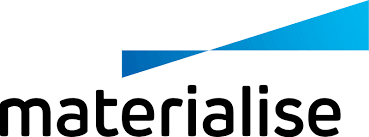Xometry Competitors & Alternatives in 2025

Discover the top Xometry competitors in 2025—Protolabs, Stratasys, Shapeways, Unionfab, and Materialise. Compare strengths and find the best alternative.
Introduction
Xometry has become one of the most well-known names in on-demand manufacturing. From CNC machining and injection molding to 3D printing, the company provides a wide range of services through its digital platform. But while Xometry is a strong player, it is not the only option available.
Many businesses search for Xometry competitors because they are looking for lower costs, faster lead times, global delivery, or more personalized support.
In this article, we’ll explore the top Xometry alternatives in 2025—including Protolabs, Stratasys, Shapeways, Unionfab, and Materialise—and help you decide which manufacturing partner best fits your needs.
Why Look for Xometry Alternatives?
Although Xometry is a powerful platform, customers often consider alternatives for several reasons:
Cost concerns: Pricing can be higher than expected, especially for startups or small-batch production.
Lead times: International customers may experience longer wait times.
Flexibility: Highly customized or low-volume projects may not get the same attention as larger orders.
Support: Large platforms can sometimes lack personalized, one-on-one engineering support.
If these challenges sound familiar, exploring competitors can open new opportunities.
Top Xometry Competitors & Alternatives
1. Protolabs

Background: Founded in 1999 and headquartered in Minnesota, Protolabs is one of the pioneers in digital manufacturing. It combines CNC machining, injection molding, sheet metal fabrication, and 3D printing into a highly automated platform.
Strengths: Protolabs is famous for its speed—delivering parts in as little as 1–3 days. It has a strong reputation in industries like medical, aerospace, and automotive, where rapid prototyping and small-batch production are critical.
Limitations: Pricing tends to be high, particularly for complex geometries or large production runs. Protolabs is best for urgent prototyping but may not be cost-effective for scaling up.
2. Stratasys

Background: Founded in 1989, Stratasys is one of the world’s leading industrial 3D printer manufacturers. Headquartered in the U.S. and Israel, the company not only sells hardware and materials but also operates its own professional manufacturing services.
Strengths: Stratasys holds several core technologies such as FDM (Fused Deposition Modeling) and PolyJet, making it especially strong in plastic 3D printing for functional prototypes and end-use parts. Its material portfolio ranges from engineering plastics to high-performance composites.
Limitations: Stratasys operates more as an equipment provider plus services, rather than a fully flexible on-demand manufacturing platform. Pricing and entry barriers are relatively high, making it less attractive for startups or small businesses.
3. Shapeways

Background: Established in 2007 in New York, Shapeways gained popularity as a consumer-focused 3D printing platform. It allows designers, makers, and small businesses to upload models, order prints, and even sell their products online.
Strengths: Shapeways supports a wide range of 3D printing technologies and materials, including plastics, resins, and metals. It is well-suited for personalized products, artistic designs, and low-volume consumer goods. The marketplace model adds extra value for creators.
Limitations: While excellent for consumer products and custom accessories, Shapeways is less competitive in industrial-grade parts or scalable production. Lead times can be longer, and bulk pricing is not always favorable.
4. Unionfab

Background: Unionfab is a leading on-demand manufacturing provider from China, specializing in 3D printing and CNC machining with a global service focus. Leveraging China’s advanced supply chain and manufacturing base, Unionfab provides one-stop solutions from prototyping to production.
Strengths:
Multi-process coverage: SLS, MJF, SLA, metal 3D printing (SLM), CNC machining, and more.
Wide material selection: Nylon (PA11, PA12), carbon-fiber composites, aluminum alloys, stainless steel, titanium, and more.
Cost advantage: More competitive pricing compared to Western providers, especially for small to medium batch orders.
Global delivery: Strong capability in cross-border fulfillment, serving clients worldwide.
Personalized support: One-on-one engineering consultation and free DFM feedback help customers optimize cost and manufacturability.
Positioning: As a flexible, cost-effective Xometry alternative, Unionfab is ideal for startups, SMEs, and international customers looking for reliable production with lower costs and global reach.
5. Materialise

Background: Founded in 1990 and based in Belgium, Materialise is one of the earliest pioneers in the 3D printing industry. It operates large industrial printing facilities and develops the widely used Magics software suite for additive manufacturing data preparation.
Strengths: Materialise has decades of experience, especially in medical and aerospace applications, delivering highly precise and regulated components. Its software ecosystem is deeply integrated into global manufacturing, making it a trusted technology partner.
Limitations: Materialise focuses heavily on high-end, industrial clients. Pricing is steep, and lead times are generally longer. For startups and SMEs, entry barriers may be too high compared to newer, more agile competitors.
How to Choose the Right Xometry Competitor
When evaluating alternatives to Xometry, it’s not enough to look at the service list. You also need to understand why each factor matters to your project.
Factor | Why It Matters | Unionfab’s Advantage |
|---|---|---|
Manufacturing Processes | Having both 3D printing and CNC saves you from juggling multiple vendors. You can prototype quickly and scale to production seamlessly. | Full coverage: SLS, MJF, SLA, SLM, Binder Jetting, CNC, Finishing and more in one platform. |
Material Availability | The right material determines performance, durability, and cost. Limited materials may block your design. | Wide selection: resin, nylon, carbon-fiber composites, asa, ultem, peek, pc, aluminum, stainless steel, titanium, inconel and more. See more. |
Cost Transparency | Clear pricing avoids budget overruns and hidden fees, which is critical for startups and SMEs. | Instant quotes + free DFM feedback for cost optimization. |
Lead Times | Delays can derail launches and damage client trust. Reliable delivery keeps you competitive. | Fast prototyping and stable batch production backed by China’s supply chain. |
Global Support | Limited logistics or payment options increase risks and costs for international clients. | Cross-border expertise: global shipping and international payment support. |
Customer Service & Engineering Support | Early engineering input prevents mistakes, reduces waste, and improves part quality. | One-on-one engineer support with free design-for-manufacturing analysis. |
Conclusion
While Xometry is a dominant player in the on-demand manufacturing industry, it’s not the only option. Protolabs, Stratasys, Shapeways, Unionfab, and Materialise each bring unique strengths and serve different customer needs.
Protolabs: Best for speed and prototyping.
Stratasys: Strong in plastic 3D printing with FDM and PolyJet.
Shapeways: Ideal for consumer-focused customization.
Unionfab: Flexible, cost-effective, and globally oriented.
Materialise: Trusted for high-end, regulated industries.
If you’re looking for a reliable, cost-effective alternative to Xometry, Unionfab offers the perfect blend of advanced technology, flexible services, and international support.
Get an instant quote with free DFM feedback today—and turn your custom designs into reality.
Special offer: for new customers, you can enjoy 10% discount for your first order.
FAQs
Xometry vs Protolabs: Which one is better?
Both are strong digital manufacturing platforms. Xometry offers a large supplier network and broad services, while Protolabs is known for extremely fast turnaround (1–3 days) and in-house production. If speed is your top priority, Protolabs may be better; if you need wide supplier coverage and flexibility, Xometry is a strong choice.
Who are the main Xometry competitors in the USA?
In the U.S., Xometry’s main competitors include Protolabs, Fictiv, and Shapeways. These companies provide overlapping services such as CNC machining, 3D printing, and injection molding. Each has different strengths—Protolabs for speed, Fictiv for supply chain flexibility, and Shapeways for 3D printing customization.
What is Protolabs best known for?
Protolabs is best known for rapid prototyping and fast manufacturing. The company can deliver CNC, injection molding, and 3D printed parts in just a few days, making it highly valued for product development and urgent projects.
Xometry vs Fictiv: How do they compare?
Xometry connects customers to a large network of suppliers, offering broad capacity and a variety of manufacturing methods. Fictiv, on the other hand, focuses on supply chain transparency and a curated partner network. Fictiv is often praised for its project management and support, while Xometry wins on scale and service breadth.

